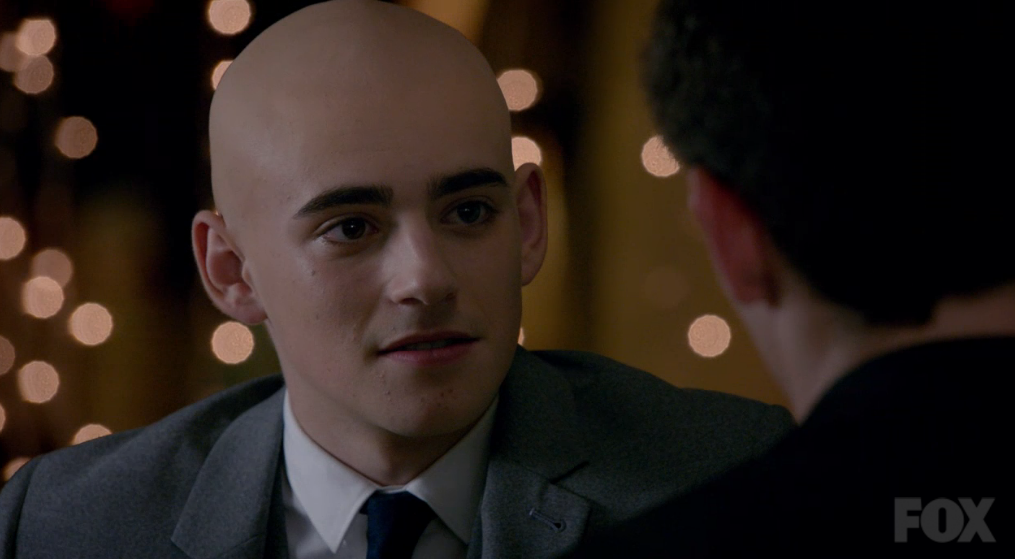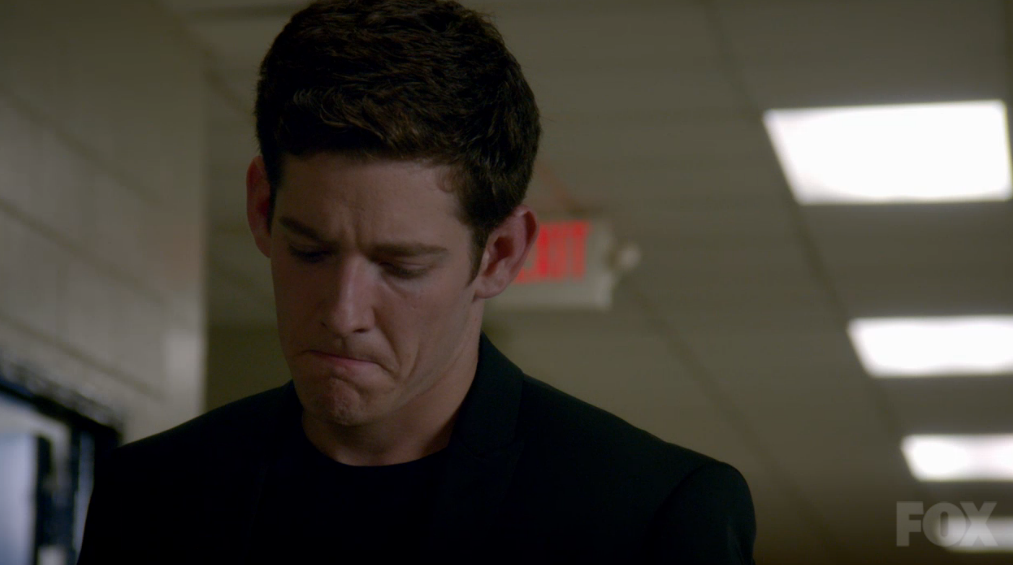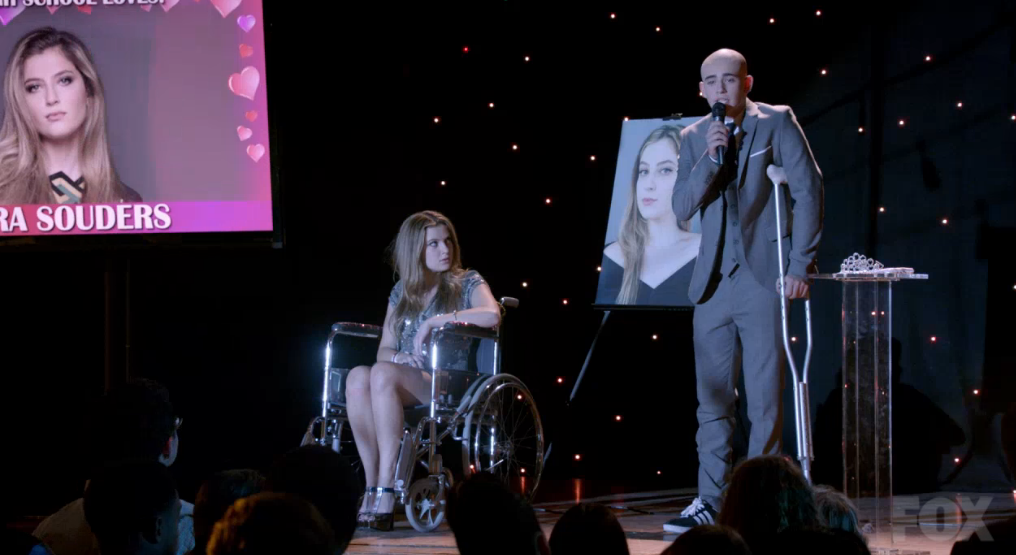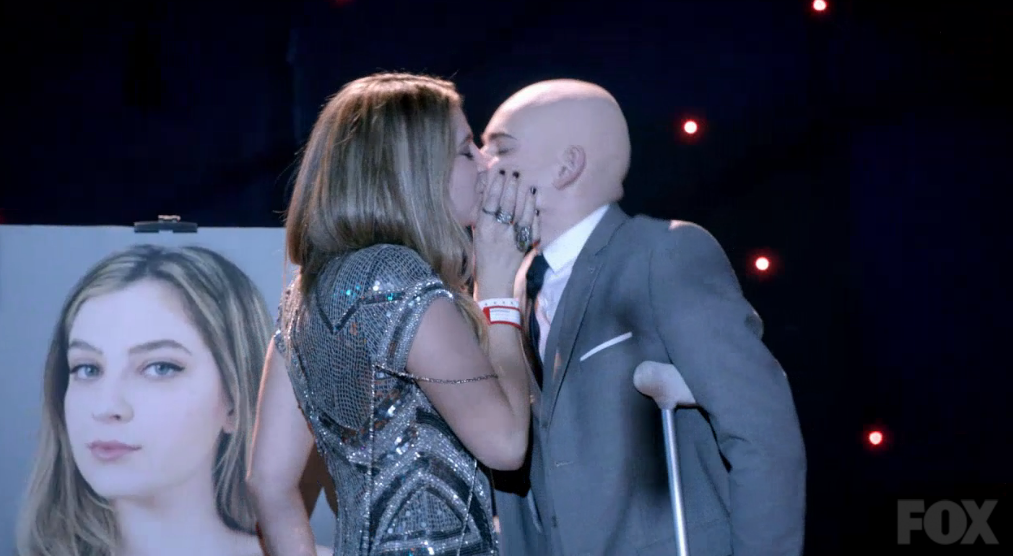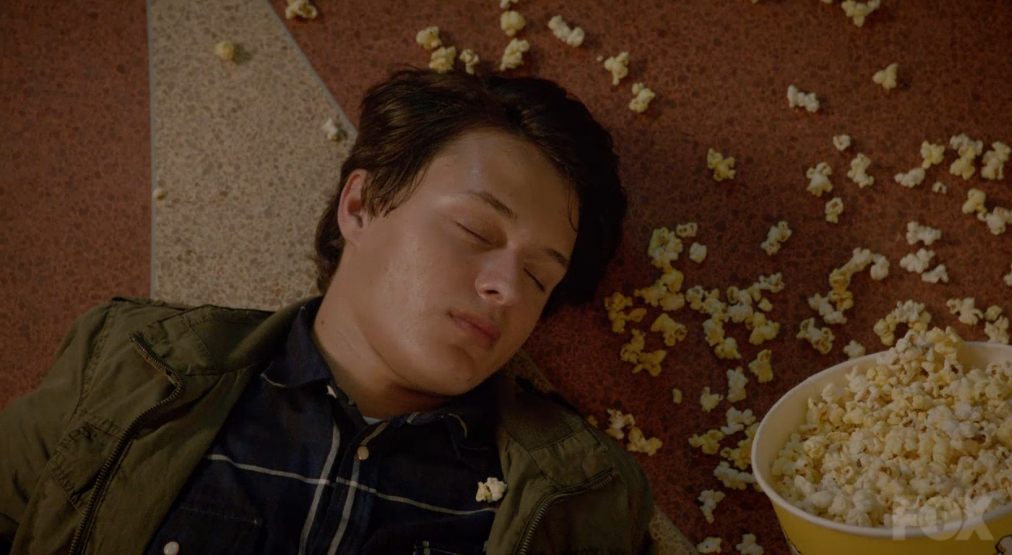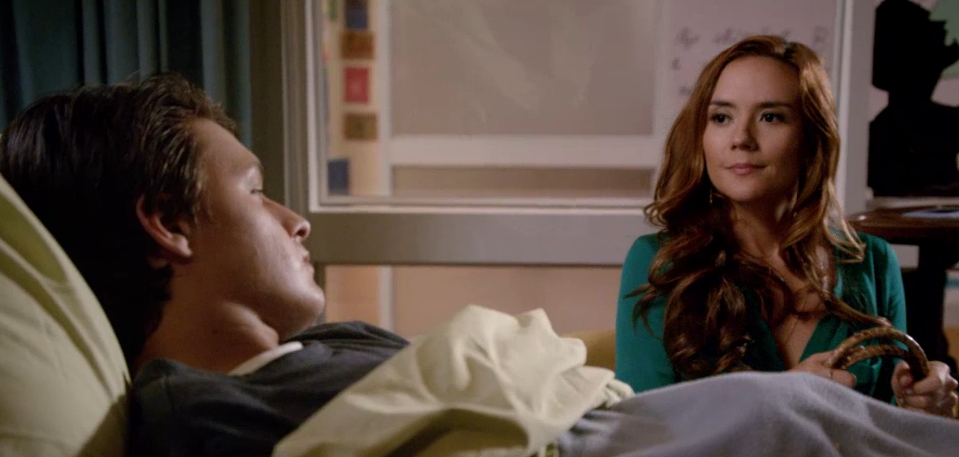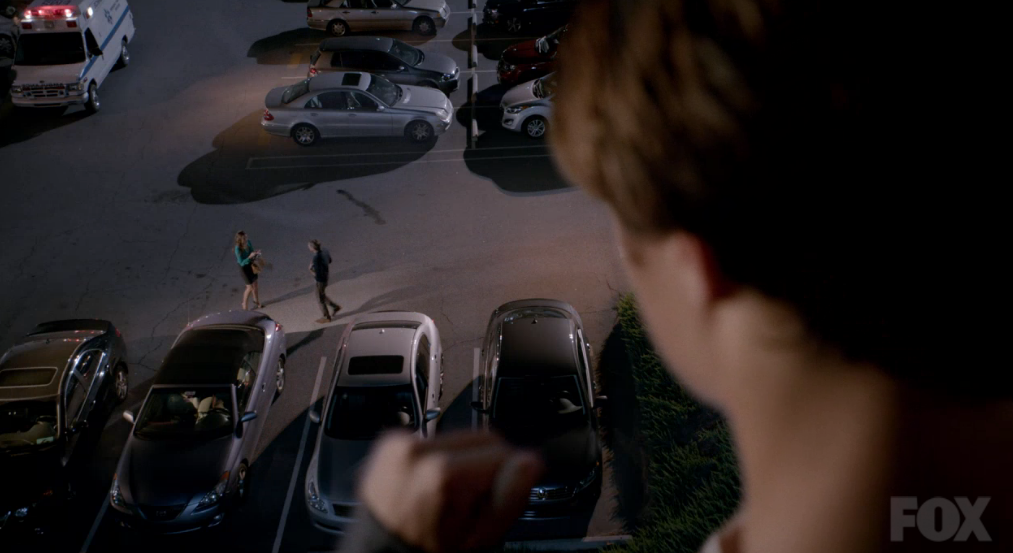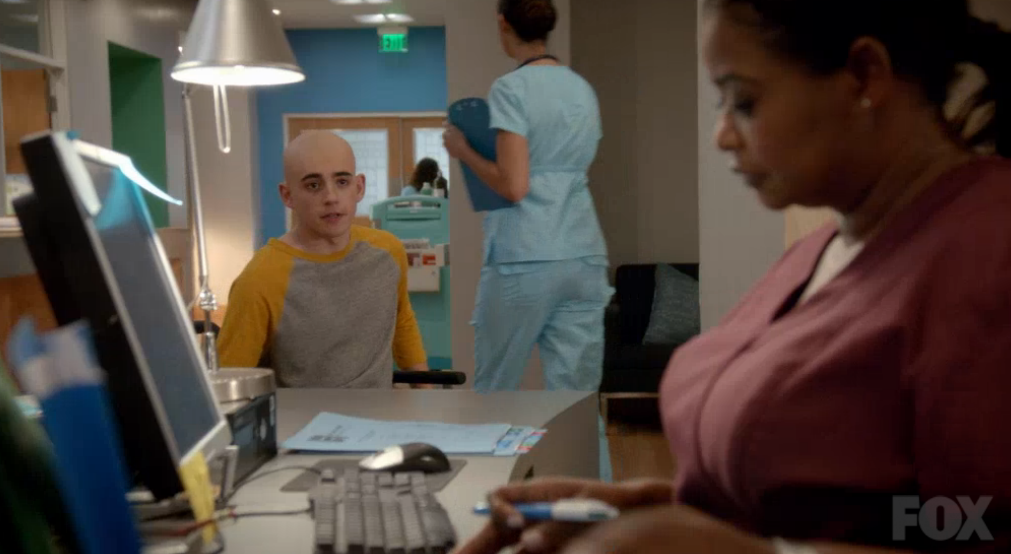Red Band Society Episode 1: A Sarcoma Patient's Perspective
 I was intrigued by "Red Band Society", a drama airing on Fox every Wednesday night at 9pm. I noticed one of the characters was a bald teenager with crutches. "Ah, he must have osteosarcoma", I thought. And I was right!
I was intrigued by "Red Band Society", a drama airing on Fox every Wednesday night at 9pm. I noticed one of the characters was a bald teenager with crutches. "Ah, he must have osteosarcoma", I thought. And I was right!
Recently osteosarcoma seems to be in the spotlight in the media. One of the characters in the movie "A Fault in Our Stars", Gus, also has osteosarcoma. I figure it may be because most osteosarcoma patients have their arm or leg amputated. Drastic treatment = more distinctive in appearance and more emotion towards the character.

With these two shows highlighting osteosarcoma patients, it's nice that there is more awareness of sarcomas, but also a sad reminder that even in this day and age, amputation is the main way of getting rid of sarcoma. Sarcomas travel along muscle planes, so if the tumor is found in one spot, it most likely has spread along the muscle. Thus, at the moment, large surgeries to remove muscle, and sometimes bone, are the most proven method to treat sarcomas. Radiation and current chemotherapy are not very effective against sarcomas. Hopefully things will change very soon with the surge of cancer immunotherapy.
When my synovial sarcoma tumor came back in the jaw area, we went to see a head surgeon at Memorial Sloan Kettering. He showed us a skull and said that with the nature of sarcomas, large areas need to be removed around the tumor. In my situation, with a recurrent tumor next to the jaw bone, basically I needed to remove my whole head to completely get rid of the tumor. It was quite hard to hear, but it was what we needed to hear. We knew drastic measures needed to be taken. Eventually I had a large jaw surgery that removed my jaw joint, 1/4 of my jaw bone and surrounding muscles to remove a recurrent synovial sarcoma tumor that was adjacent to the jaw bone. I followed it with a lot of cancer immunotherapy, and as of now, I've had 2.5 years of clean head scans. Praise God!
Watching this show reminded me of the many experiences we (cancerwife + cancerhusband) had in the hospital, emotions and struggles that we faced in battling a life-threatening disease. I appreciate how the show brings these "behind-the-scenes" to the general public, hopefully to help others to empathize with people going through major health issues.
Episode 1

Jordi comes specifically to this hospital and pleads with Dr. McAndrew to be his doctor because he is the best.
Jordi's persistence reminded me of the long journey that we've taken to search for the best doctors. There have also been times when these doctors didn't want to see me anymore, and we have had to explain ourselves and be persistent about why we value their guidance. Thankfully they are all now part of the team that helps to keep me well and alive.
One of the pivotal moments in the first episode is up on the rooftop of the hospital. Leo has collected many red bands over all his hospital stays. He gives a red band with significance to each of his friends.
What are the red bands used for? Red bands are put on a patient's wrist to note down what allergies they have. Some hospitals are haphazard in noting down allergies on the red band, so I always verbally remind the nurses and doctors of my allergies.
Watch Red Band Society Wednesday 8/9C Fox or online.
Red Band Society Episode 2: A Sarcoma Patient's Perspective
Red Band Society Episode 2 - Sole Searching
 Jordi goes into his leg amputation surgery. On his legs, he's written with black marker on one, "This leg" and on the other, "Not this leg".
Jordi goes into his leg amputation surgery. On his legs, he's written with black marker on one, "This leg" and on the other, "Not this leg".
I chuckled at that. It reminded me that we had actually thought about writing a note on my forehead for the surgeon! We eventually decided not to do that. But we did stick a typed up note to my arm, with instructions about the peculiarities of my catheter line that goes from the arm to the heart.
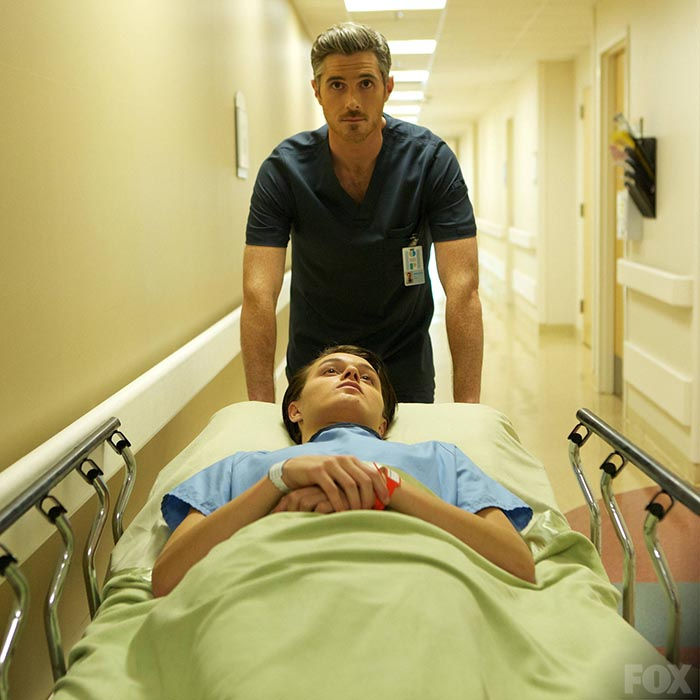
Before anethesia kicks in, Dr. McAndrew tells Jordi to think about a happy memory, then the doctor starts counting down and the view starts to get fuzzy.
I've been in anethesia many times, and I thank God for it! Things get fuzzy, then it seems like I'm in a deep sleep - I don't hear, see or smell anything, until the procedure is done. AND the biggest thing is they ALWAYS wipe away your memory. Yep. It's quite scary that it's possible, but it makes going through surgery much more pleasant.
When Jordi is under anethesia, Charlie, the boy in the coma, appears to Jordi and wants to play games with him.
Unfortunately, when I'm under anethesia, no one's ever appeared me, like in this episode. I wish it was that exciting to go into anethesia :-) With all the times I've had anethesia, I could have played quite a few board games with Charlie!
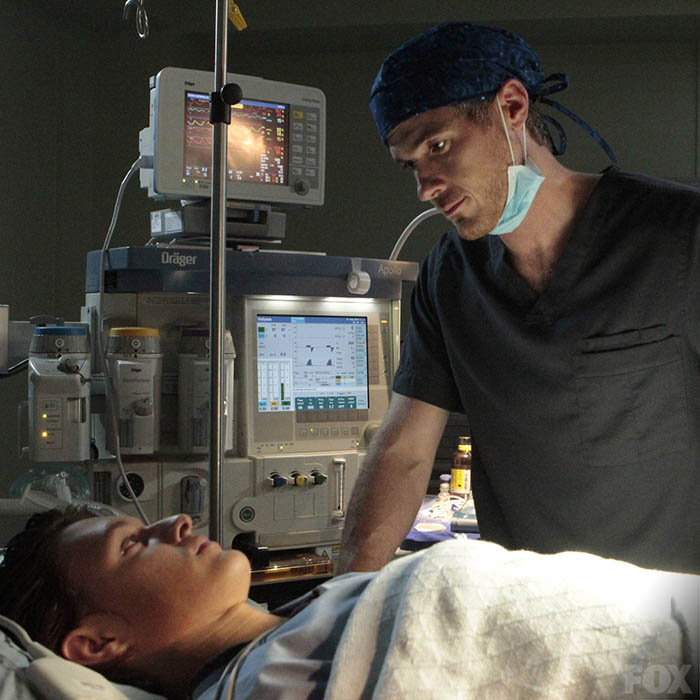
Both Cancerhusband and I said "Uh oh..." We knew that meant the cancer had spread, and he needed to have systemic treatment, such as chemotherapy to shrink the tumor first.
Whenever I go into surgery, there is always a possibility that things are worse than they first appeared, or complications occur in the procedure. I try to prepare myself for the worst, but always hope for the best. This means that I try to be at peace with the worse case senario. Yes, there may be lots of crying before to come to terms with it. But when God's peace fills my heart, and I let go of my well-being to the surgeon and his team, I'm ready to go through the procedure.
So, it is always a relief when I wake up after the procedure, and I'm still alive.
Dr. McAndrew struggles with sharing the bad news with Jordi and it weighs heavy on him.
I'm constantly in awe of the work that surgeons do. The amount of skill and responsibility that is entrusted to the surgeon is tremendous. Making immediate decisions that impact the patient's life, that's pretty heavy!
Watch Red Band Society Wednesday 8/9C Fox or online.
Red Band Society Episode 3: A Sarcoma Patient's Perspective
Red Band Society Episode 3 - Liar, Liar Pants on Fire
 Charlie: "One thing I've noticed about being in a hospital -- People lie a lot, they lie to make you feel better, they lie to make themselves better…Lies are just one way of dealing."
Charlie: "One thing I've noticed about being in a hospital -- People lie a lot, they lie to make you feel better, they lie to make themselves better…Lies are just one way of dealing."
I agree with Charlie's statement somewhat. What I've seen more often is that the complete truth is not laid out, whether it is intentional or not.
For example, I've had one doctor tell me a procedure is not possible, but another doctor says it is. Often it's the limitation of one doctor or hospital that reduces the possibilities. We've had to go for a second, third or even fourth opinion to get the whole truth.
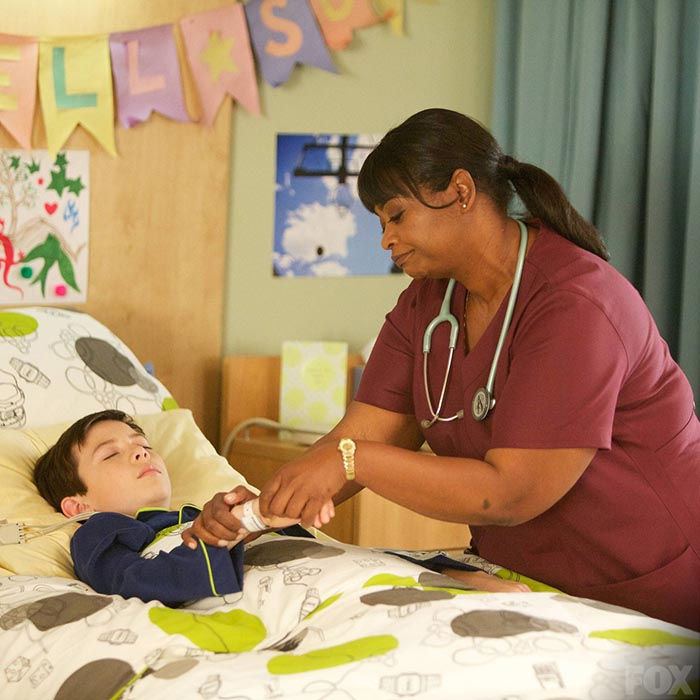
Charlie: "Then there are the lies that you tell yourself, like I'm not that sick"
I felt that way after I finished chemotherapy. The side effects of chemotherapy are cumulative, and I started getting some neuropathy (nerve damage). I felt some weakness in my legs when I was walking in the house, but didn't think much of it. I was done with chemotherapy, after all! Then I took laundry out to the backyard and my legs complete gave way when I was going down a small step. I scraped my knee quite badly.
It's hard when the treatments make you very sick and weak, putting you in a state that you've never been in. We want to feel normal and useful, but resting and accepting the drastic effects of treatment is the wiser thing to do.
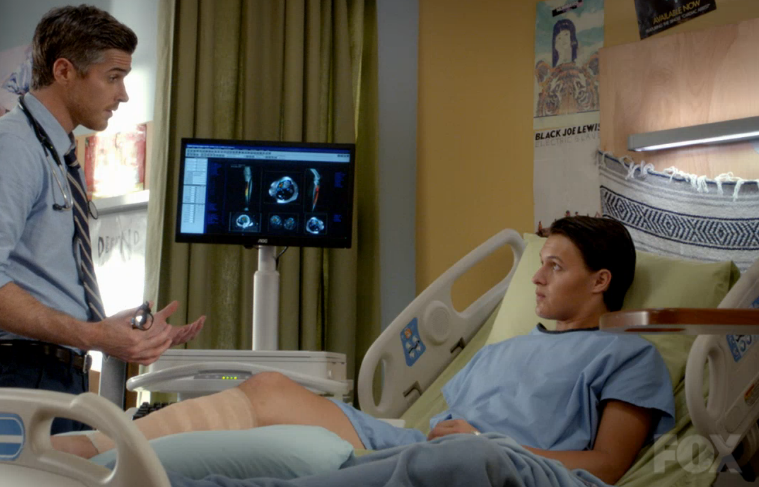
Dr. McAndrew shows Jordi his scan, which reveals the diagnosis of Ewing's sarcoma instead of osteosarcoma. With this change in diagnosis, Jordi needs chemotherapy instead of surgery now. Charlie comments, "You're looking at the one thing in the hospital that never lies -- a PET scan".
Oh, I laughed and clapped when I heard that because it is so true! Scan time always causes anxiety. There's tension between wanting to know what exactly is going on inside and not wanting there to be bad news. Scans really do not lie. However, radiologists can miss out on detecting tumors from the scan.
I've had a tumor clearly appear on the scans, but the radiologist did not note it in the report. Often oncologists just read the radiologist's written report on the scan, and don't look at the actual scan. That's how tumors can be completely missed. It's quite scary to think about how many patients could have had better outcomes if the scans had been carefully read and reported.
With that experience, we had to start looking at the actual images of my scans. We learned to correlate the scan images with the radiologist's report. We scrolled through the scan images, scouring it for bright tumor spots. Then we compared it with past scans to look for any changes. Any suspicious spots were measured and tracked through time.
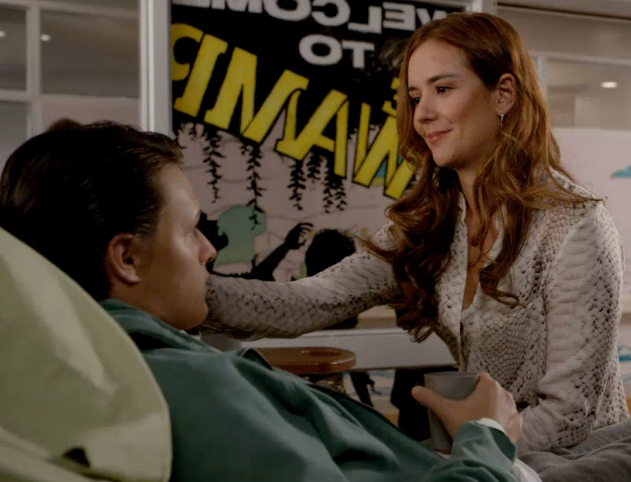
Jordi's mom reappears in his life, thinking he has a minor health issue. Jordi confronts his mom about the seriousness of his cancer -- he's not just sick, he could die.
People react in all sorts of ways when you have a life-threatening condition. One of these ways is to minimize the seriousness of it. This response may be helpful to patients who don't want to see their illness as serious.
But, for me and Jordi, we're both fully aware of the possibility of death, and fighting very hard. In this case, I appreciate it when people realize that the things I say and do are in the context that my days are numbered.
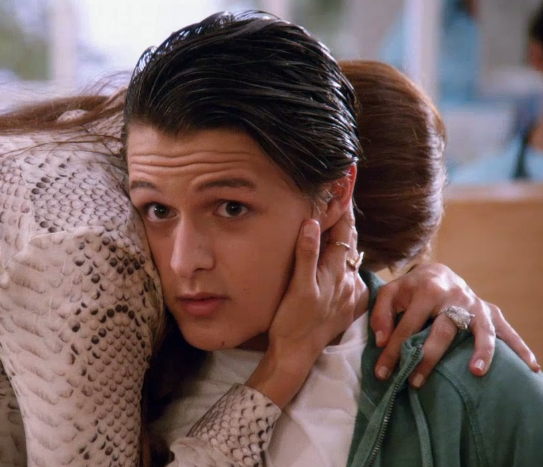
Dr. McAndrew tries to convince Jordi to allow his mother to come alongside of him, "Research, as well as my personal experience, shows that patients have a much better chance of survival when they have someone close by their side".
I know that without Cancerhusband by my side, I would not be alive now. His steadfast determination to restore me to health, and his constant companionship has given me so much encouragement and strength to go through even the darkest times.
Watch Red Band Society on Fox Wed 8/9C, or online at Red Band Society Episode 3 - Liar, Liar Pants on Fire.
Red Band Society Episode 4: A Sarcoma Patient's Perspective
 Leo wants to excel at soccer again after receiving a sports scholarship. With his new prosthetic leg, Leo tries to dribble the ball around IV poles, and ends up knocking them down. When he shares his frustration with Nurse Jackson, she reminds him, "Well, you're walking, aren't you? It wasn't that long ago that you were worried you wouldn't walk again." She then encourages him by arranging for a sports star who went through similar trials as Leo to train him.
Leo wants to excel at soccer again after receiving a sports scholarship. With his new prosthetic leg, Leo tries to dribble the ball around IV poles, and ends up knocking them down. When he shares his frustration with Nurse Jackson, she reminds him, "Well, you're walking, aren't you? It wasn't that long ago that you were worried you wouldn't walk again." She then encourages him by arranging for a sports star who went through similar trials as Leo to train him.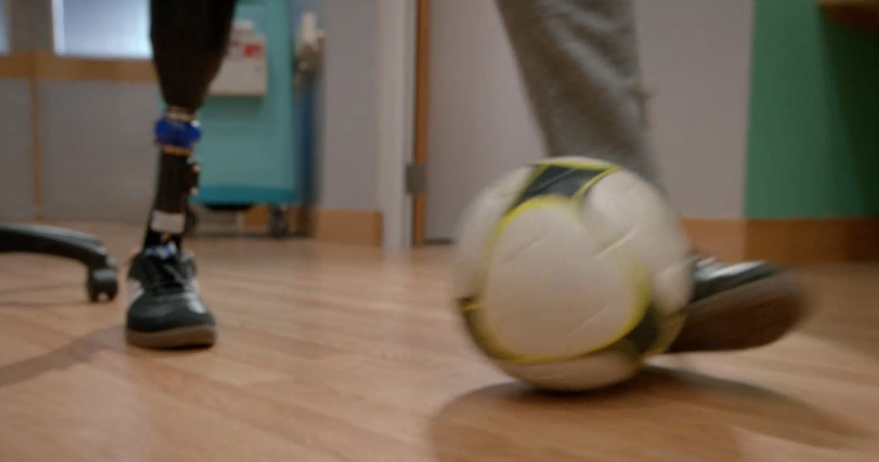
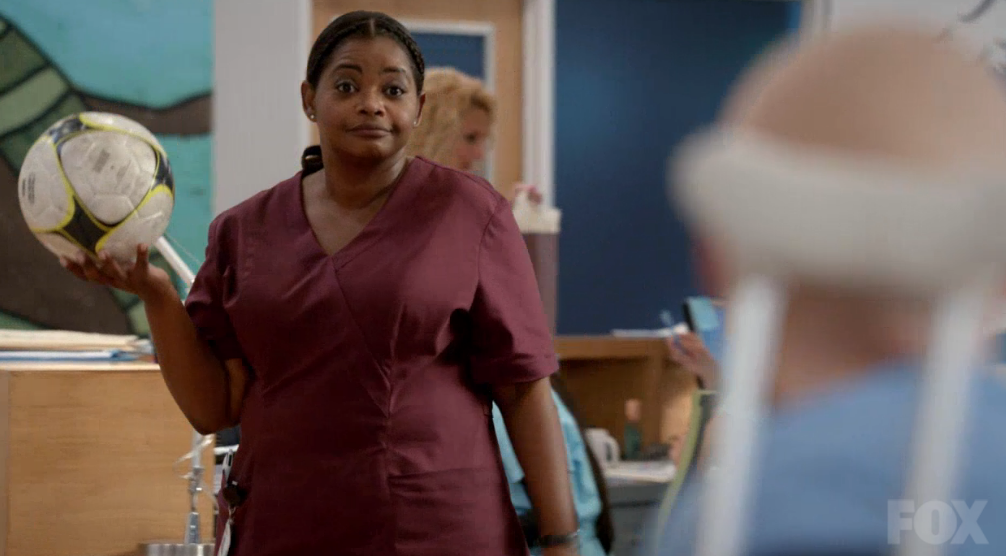
It's a very understandable process that I have gone through too. Every time I have scans, it's a real possibility that I wil be taken back to square one if tumor is detected on the scan. It makes me reflect on where I had been, at the brink of death. That makes me grateful to be alive. Every day is a gift from God, and the simple things in life, like being able to eat, cook, enjoy life, are huge pluses.
